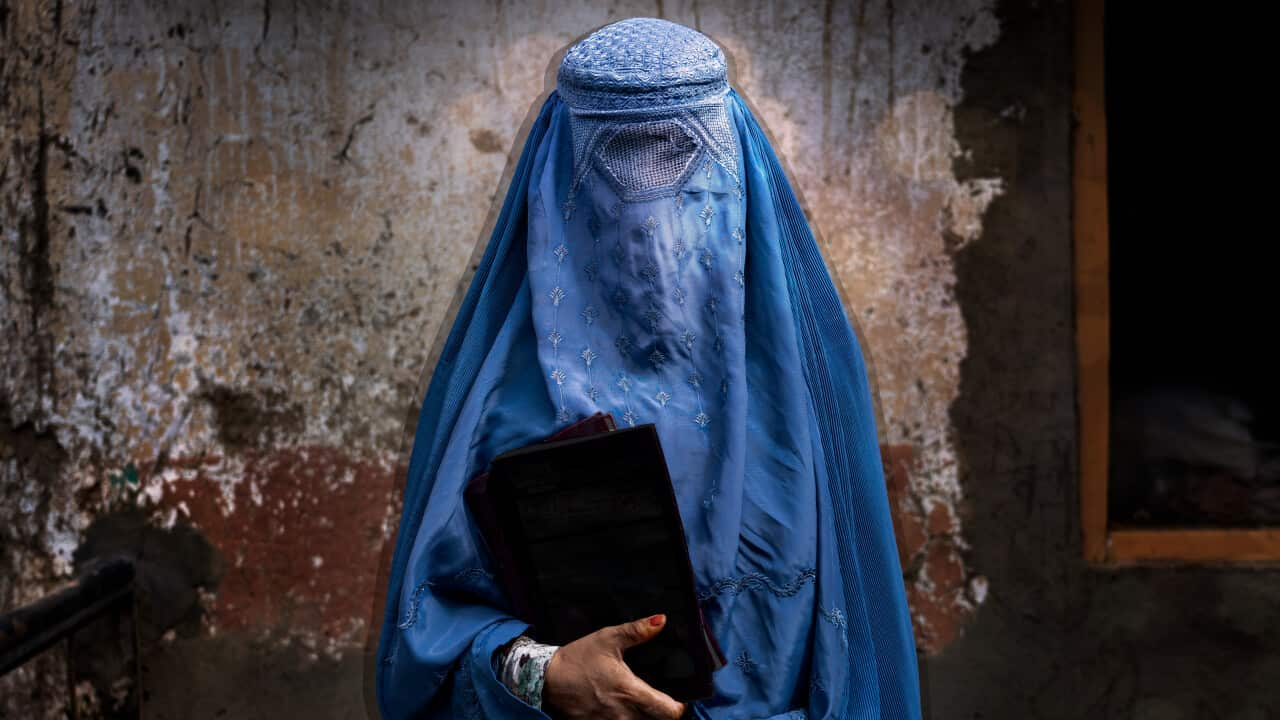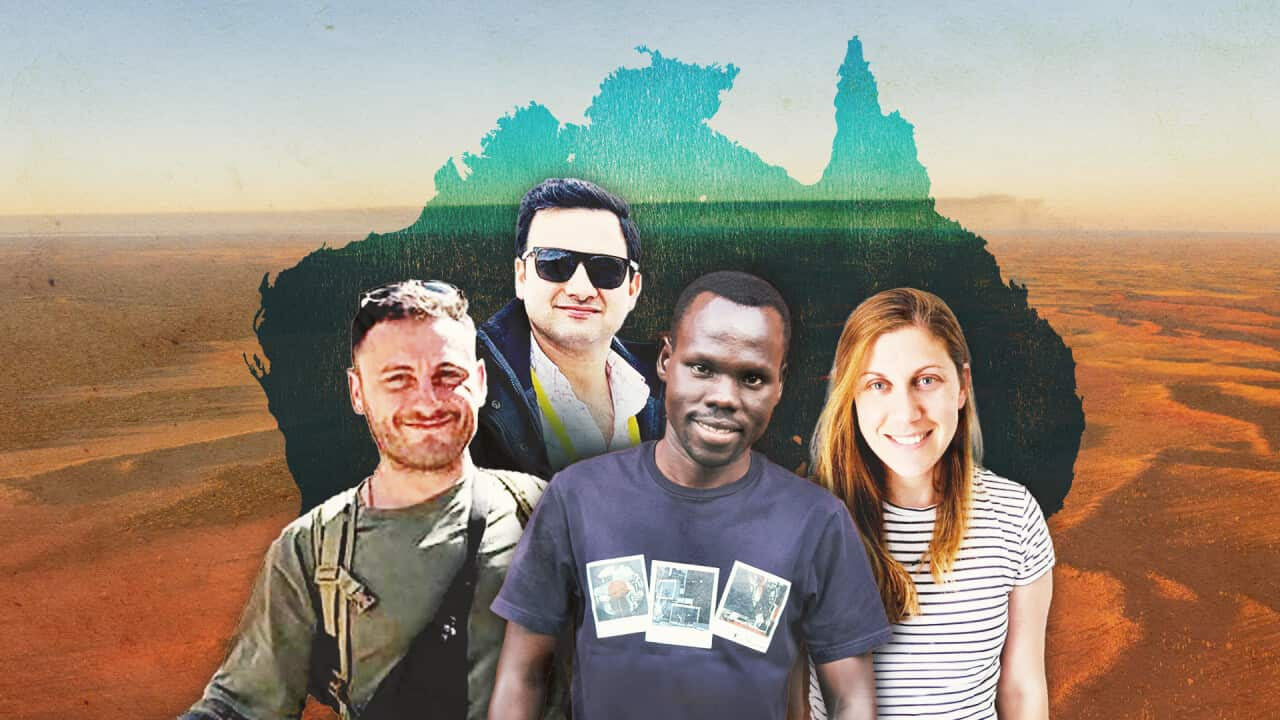Listen to Australian and world news, and follow trending topics with SBS News Podcasts.
TRANSCRIPT:
From her home in Australia, Shahrzad Orang is thousands of kilometres away from Iran.
But three years ago, she was on the streets protesting against the regime’s mandatory hijab laws.
Those protests were sparked by the death-in-custody of Mahsa Jina Amini, who was arrested by the so-called morality police for allegedly not complying with the regime’s mandatory dress code.
"I just thought that she could be my sister or one of my close friends. So I feel similar like other women felt. And we cried. We go to street to say: it's not the way that you are acting to us, it's not correct.
Shahrzad says two of her friends died during the uprising; five others are still in prison.
Threatened by the Islamic Revolutionary Guard Corps herself, she decided to flee to Australia.
"They checked the phones and calls and emails, everything on my phone. And they told me that you are gonna die. And we are gonna kill you."
Three years on, women in Iran are resisting regime suppression in different ways.
Speaking to SBS from within Iran, this woman's voice and name has been changed for her safety.
We will call her Reyhaneh.
"It is a daily battle, and perhaps even a daily battle with the neighbour, the shopkeeper, the regime, the morality police, the bank manager, everyone, anyone you can imagine. Hijab is just an excuse for many other restrictions. It is not just the two or three metres of cloth you put on your head."
A UN Fact Finding Mission reported earlier this year the regime has found new ways to repress women.
The methods include: deploying the use of digital surveillance tools and rolling out a state-backed mobile application encouraging citizens to report women for breaching hijab laws.
This is Dara Conduit, a Middle East specialist at the University of Melbourne.
"The regime has been trying to use technology to control this. And it has released, videos in which it claims that it's now using smart cameras or, you know, artificial intelligence empowered cameras, which can identify women on the streets who are not wearing hijabs. And that those women will be automatically identified and then sent text messages and fines or be asked to come to court."
Women are also using digital tools to ‘fight back’ - reporting experiences of any type of harassment on the women-led application 'HarassWatch', or reporting the morality police locations in other phone applications.
This is Shadi Rouhshahbaz, an associate research fellow at the Alfred Deakin Institute for Citizenship and Globalisation, at Deakin University.
"What makes documentation so important is that we - by documenting from the prevention step to, unfortunately, reports of femicides and losses of life, we actually hold the system accountable."]]
Some women in Iran, like Reyhaneh, describe life under the regime as a 'daily battle'.
But they still dream of a future where their demands are met.
"I still have my headscarves. Even if the regime falls, I think I'll keep one or two of them as a symbol of the era we had to endure. As a souvenir of the era we endured because of this scarf."













